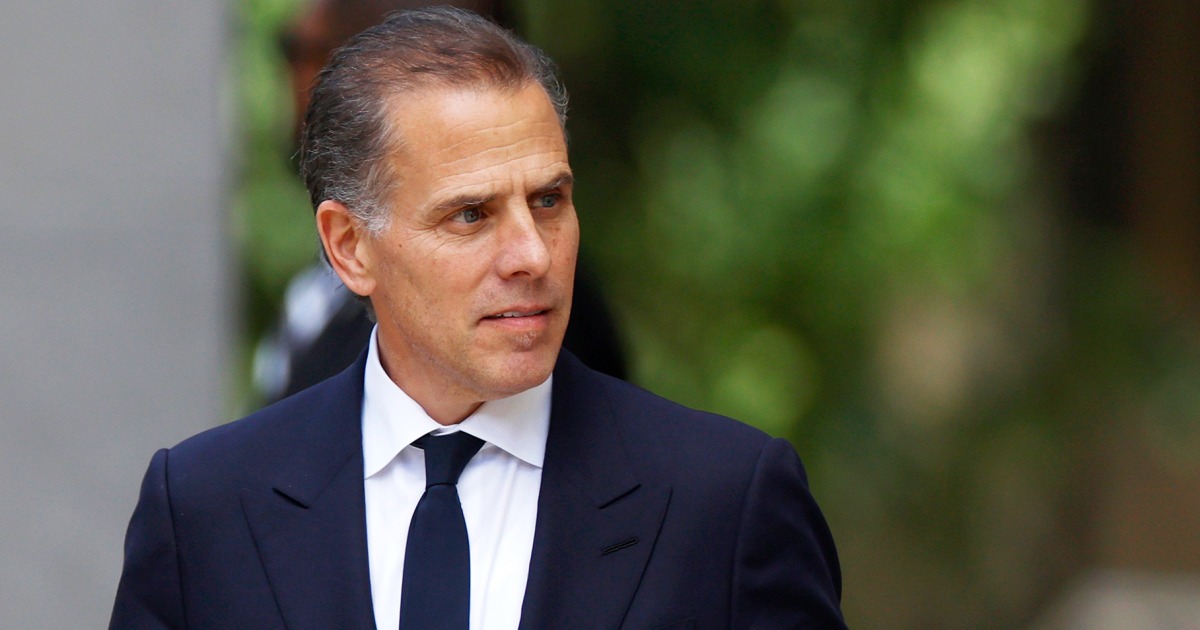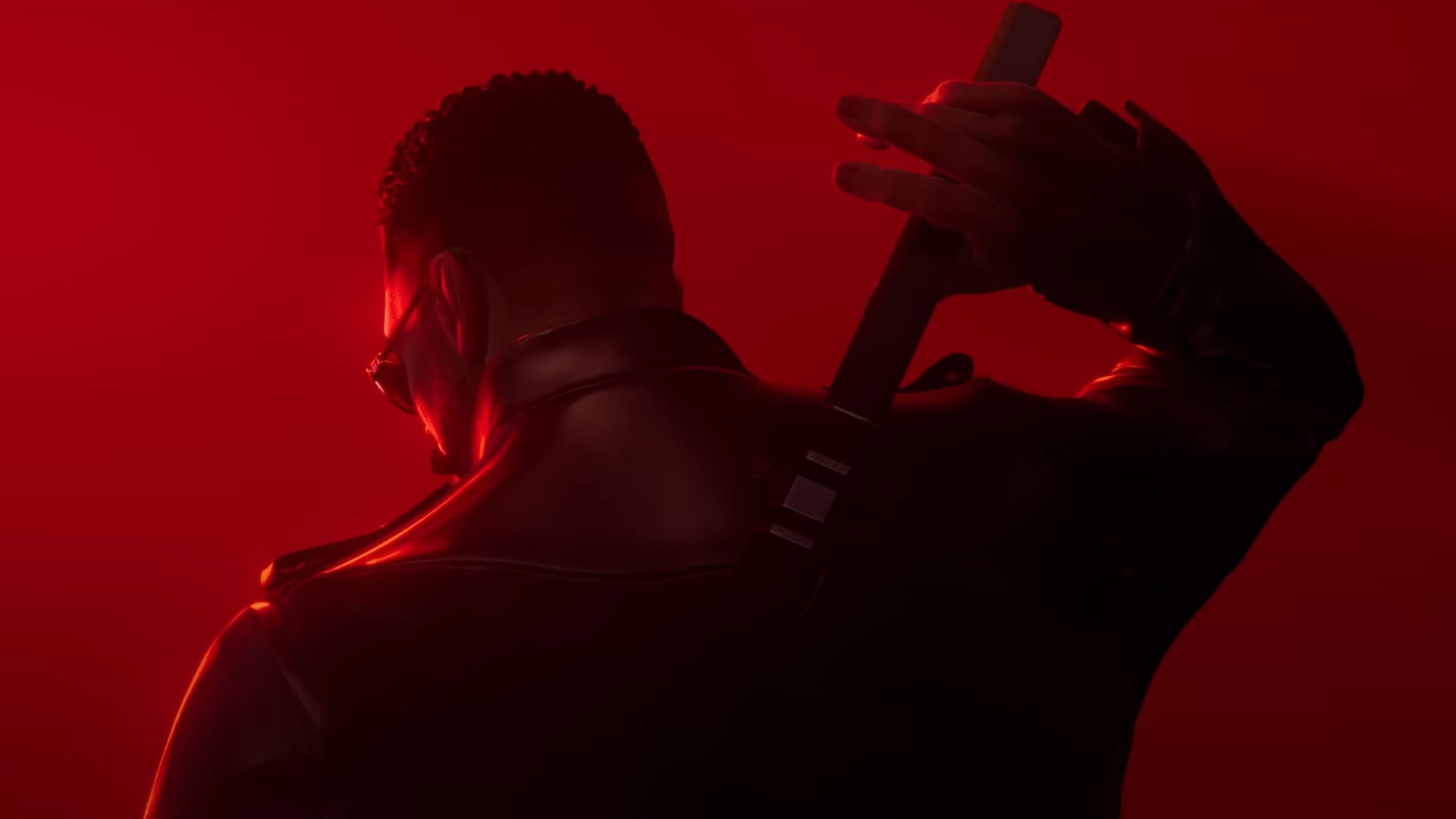WILMINGTON, Del. — Jurors in Hunter Biden’s gun trial began deliberating Monday after they heard new evidence from a witness about his drug use in October 2018, around the time he is alleged to have illegally purchased a firearm.
Prosecutors rested their case after they told jurors that Biden was a “habitual” user of drugs from 2015 to 2019, a period that overlaps with his gun possession, and that he knew he was an addict and even wrote extensively about it in his memoir.
His lead defense attorney, Abbe Lowell, said that while Biden may be an addict, prosecutors had not proven that he knowingly lied beyond reasonable doubt on the form he used to buy the gun.
“With this very high burden, it’s time to end this case,” Lowell said.
After a response from the prosecutors, U.S. District Judge Maryellen Noreika completed her instructions to the jurors. They began deliberations but did not reach a verdict and will resume Tuesday morning.
Biden was embraced by his wife, Melissa Cohen Biden, his uncle James Biden and others. At times, he held his palms together on the table as he watched the jury and the prosecutors.
Here’s what you missed on Day 6 of Hunter Biden’s trial:
Closing statements
Assistant special counsel Leo Wise pointed at the swell of Biden confidants seated behind the defense table as he began his closing arguments, a crowd that has included Biden’s friends and close relatives, including his wife and his stepmother, first lady Jill Biden. Melissa Cohen Biden, Jill Biden and his half-sister, Ashley, all wore black.
“All of this is not evidence,” Wise said, gesturing at three packed rows. “People sitting in the gallery are not evidence.”
The jurors may recognize them or may have seen them reacting to something, he said, “but respectfully none of that matters.”
Wise said Biden knew he was addicted to drugs and bought the gun anyway, lying on a federal form to pass a background check.
“It’s plain and simple. These same laws apply to the defendant just like they would to anybody else,” Wise said. “What leads to the three felony charges in this case are the defendant’s choices, not anyone else’s.”
Lowell said in his closing statement that jurors could not convict Biden based on the insinuations and conjecture that he said were the basis for the government’s case, and he returned to Biden’s memoir.
“Reasonable Doubt = Not Guilty,” read a slide Lowell presented during his statement.
Lowell said the jury should carefully weigh testimony in which witnesses received immunity, and he seemed to suggest that Zoe Kestan, Biden’s former girlfriend, or Hallie Biden, the widow of Biden’s brother, Beau, both of whom provided devastating accounts of Biden’s spiral into drug addiction, could not be taken at face value.
“Whether or not their testimony may have been influenced by the government’s promise is for to you determine,” Lowell said.
He also slammed prosecutors’ “cruel” questioning of Biden’s daughter, Naomi, who, under cross-examination Friday, shared with the court that he had texted her at 2 a.m. to exchange cars or that she wrote to him exasperated when her subsequent efforts to reach him went unanswered.
Prosecutors asked Naomi Biden whether she knew if her father was meeting with someone named “Frankie” during that time or had shared a code to access his bank account. She told the court she could not remember.
If someone suggests Biden was meeting with a dealer instead of her “but you don’t produce that man or any actual evidence that that exchange happened, and then you ask her if she uses cocaine, that is reasonable doubt,” Lowell said. “And extraordinarily cruel.”
Lowell seemed to land a punch when he returned to the testimony of the salesman who sold Biden his gun, who last week told the court that he observed customers closely for any signs of drug use or drinking and would refuse a sale if he had any doubt.
After having mulled over the decision over the weekend, Biden chose not to testify in his own defense, which would have opened him up to potentially damaging cross-examination.
New text messages
FBI Special Agent Erika Jensen testified about previously unseen messages and location data from Biden’s cellphone, which showed him at or near a 7-Eleven on two dates near the time of the gun purchase, a period the defense has characterized as a gap in the prosecution’s case.
When Biden texted Hallie Biden, his sister-in-law and former romantic partner, about waiting at a 7-Eleven for a “dealer named ‘Mookie’” the day after he bought the gun, it was because he was avoiding her at the time, the defense suggested.
Prosecutors told Biden over the weekend that Naomi Biden’s testimony was inconsistent with new messages and location data they uncovered from his cellphone, including her account of when her father arrived in New York to meet with her in October 2018. In an e-mail to the defense late Sunday, prosecutors shared 42 text messages from Hunter Biden and others, as well as video and other data that showed contradictory evidence.
Some of the messages showed that in the days after Biden bought a gun, he was arranging to meet someone named “Junior” at a 7-Eleven, who, at one point, asked him, “Do you want the same?”
Jurors took detailed notes.
In response, Lowell argued that when Hunter Biden texted Hallie Biden “are you up” in the early hours of the morning while waiting at a 7-Eleven, there could have been a simpler explanation.
“You don’t know whether it was for a donut, a coffee?” he said.

